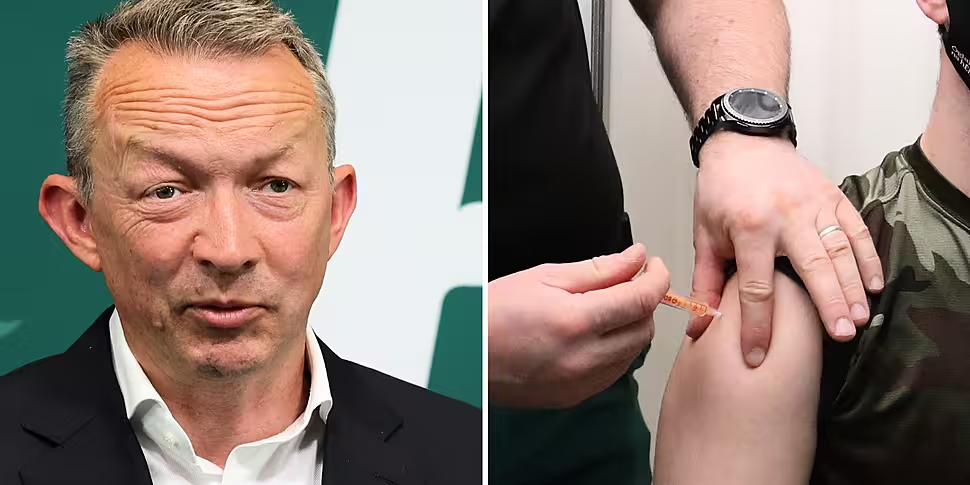Ireland's vaccine 'floodwall' has put us in a much better place, but it can still be breached if case numbers rise too rapidly.
That is according to the Chief Clinical Officer with the HSE, Dr Colm Henry.
The warning comes amid growing fears that the Delta variant could be responsible for more than 1,000 cases a day by July 19th.
Meanwhile the vaccine portal is now open for 34-year-olds with this extended as far as 30 by Sunday.
Dr Henry told Newstalk Breakfast everything looks positive, but we need to be cautious.
"I want to stay positive here because there remains lots to be positive about.
"We're going to pass that threshold of 4.5 million vaccines being given out.
"Almost 70% of the population here have a dose one, 50% dose two - so we're building that floodwall.
"And it's good to see the vaccine as a floodwall against the virus.
"It doesn't mean it's completely unbreachable, but it's a big, big defence for us."
On the Delta variant, he says data from Britain will be key.
"What the Delta does... it's a much more transmissible variant, it's much easier to catch.
"And compared to what we were dealing with one year ago, it's about almost 100% estimated increased transmissibility.
"And that's what our public health doctors are telling us - the story from the ground is outbreaks happening easier, spreading easier.
"That's what we call secondary attack rates: it means that every person who's affected in the original outbreak is likely to go on and spread it further on.
"But what has changed in the past year, and what has changed since January, of course is this vaccine programme, which gives us a big floodwall of defence.
"And it's a good floodwall [but] it's not unbreachable."
'UK approaching 30,000 cases per day'
Dr Henry says they are keeping a close watch on England and Scotland.
"If there's enough cases, even in a low-risk group of population, somebody somewhere can get get sick and somebody can be admitted to ITU.
"And we see rising hospitalisations, albeit from a low base, in England and Scotland now."
However he says the chances of hospitalisation are now lower than January.
"Unfortunately by January we knew the conversion of 1,000 cases led to about 30 to 50 hospitalisations, or three to five ITUs.
"Now because of that floodwall it's much, much lower - it's certainly going to be much lower.
"We know that the substantial reduction in hospitalisations among fully vaccinated people of the order of 92% for AZ [AstraZeneca] and 95% for Pfizer."
Asked to put a figure on it, he says: "It's too early for us to say - we're still observing the impact, particularly in the UK.
"We see daily cases rise up substantially in the UK, approaching 30,000 per day, 186,000 last week - but admissions [to hospital] 2,000 in the past week, up 30%.
"So the case numbers up 50%, the hospitalisation up a lower level but from a very low base.
"In Scotland a number of weeks ago we were seeing about nine admissions per day: now we're seeing about 35 admissions per day.
"Like any floodwall: if the flood gets high enough and the pressure becomes big enough through the numbers or cases, it will be breached."
On the vaccine rollout, he says they are still on course to vaccinate all adults by the end of August or mid-September.
"We always say 'supply dependent' but I think notwithstanding all those multiple changes and the uncertainties we've had - particularly with AstraZeneca, and to a certain degree Janssen - we're certainly hoping by end of August/mid-September we'll have the eligible population fully vaccinated".









